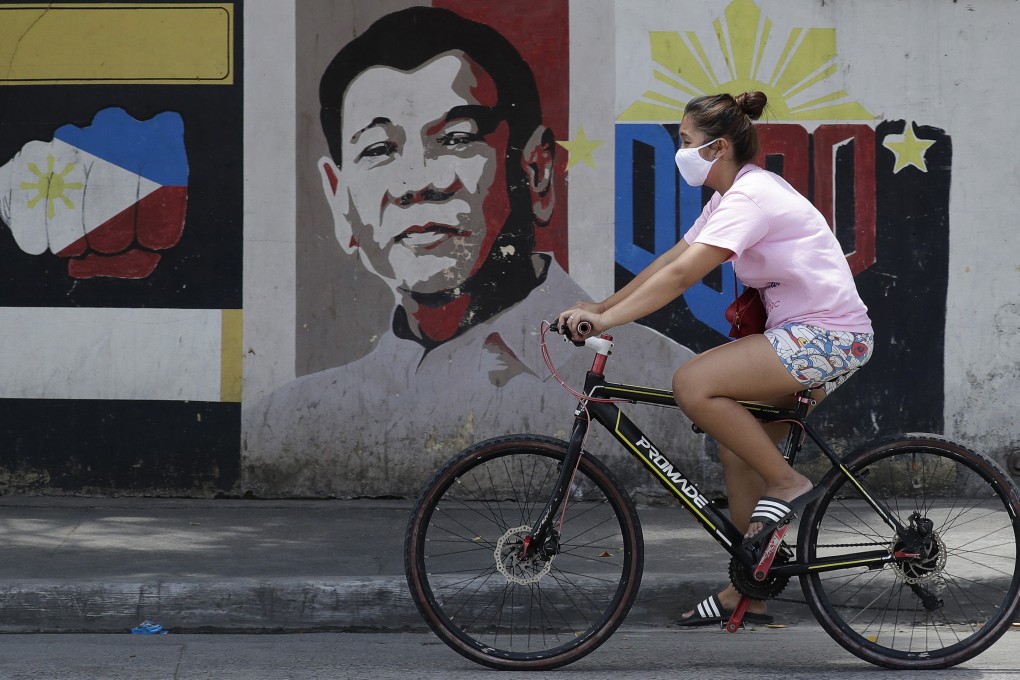Coronavirus: Duterte to sign US$5 billion emergency bill to fund virus testing, subsidies for low-income families
- Some 18 million households will receive handouts to cope with the pandemic, while the package will also go towards hospitals and equipment for health workers
- The final version of the law removes a controversial section that would have granted Duterte sweeping powers to take over private firms, including banks

Philippine President Rodrigo Duterte is expected to sign a new law by Tuesday that would grant him emergency powers to combat the coronavirus crisis, the country’s senate president said, as the number of cases rose to 462 and deaths reached 33 on Monday.
Senate President Vicente “Tito” Sotto III said: “I expect him to sign it tonight or tomorrow.”
The law will free up 275 billion pesos (US$5.3 billion) of this year’s national budget, of which 200 billion pesos will be used to fund subsidies of between 5,000 and 8,000 pesos for 18 million low-income households.
The remaining 75 billion pesos would be for coronavirus testing and processing, personal protective equipment for those on the front lines, and to construct or lease temporary hospitals and housing for front-line health workers.
The law will not include a section that would have given Duterte sweeping powers to take over private firms such as public utilities and private banks – a controversial proposal that sparked public outrage and described by critics “very dangerous”.
The law was able to be fast-tracked after Duterte certified the emergency bill as urgent, enabling both chambers of congress to pass the first, second and third reading in one day. Normally, the constitution requires three separate readings in three days.